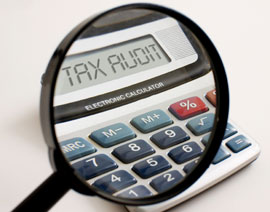How to Avoid a Tax Audit
Tax audits are Canada Revenue Agency’s (CRA) way of ensuring that your tax return accurately represents the taxes you owe the government. There are two levels of severity when it comes to tax audits that a Canadian enterprise may face. One is a desk audit, which is when Canada Revenue Agency simply wants to look into one component of a tax return that may appear to be questionable. The other is a full-blown audit. The latter can be extremely stressful and taxing on an enterprise and its team.
In all cases, it is best to avoid any type of invasive financial audit. They are time-consuming and they often lead to spending money that your business did not account for. Therefore, our seasoned Canadian accounting team has created a list that will teach you how to avoid a tax audit.
How does Canada Revenue Agency decide what businesses to audit?
- When particular industries are demonstrating trends of non-compliance, CRA may target various businesses in this industry to set examples and put an end to unfavourable patterns in tax reporting
- A CRA computer program selects businesses that will be looked into further
- They may conduct an audit in accordance with a tip, an outside source or in response to an investigation
- Negative association
- If a business is associated with another enterprise that is being audited, the former with also likely be audited
How to avoid a tax audit
- Maintain positive relationships, especially those that may influence Canada Revenue Agency’s opinion of your enterprise
- Comply with Canada Revenue Agency dictates
- Accurately report your income; repeatedly reporting a loss is a major audit trigger
- Never miss tax deadlines
- Understand which tax forms are relevant to your business
- Use real numbers, not estimates when filling out tax returns
- Comply with Canada Revenue Agency dictates
- Do not associate with businesses that may be caught in a tax evasion scandal
- Be respectful of team members and business partners as, one day, they may be that anonymous tip that brings CRA knocking at your door
- If CRA reaches out to you, be helpful and courteous to avoid spurning an auditor who may then search for a reason to audit your company
- Do not explain your expenses — until you are asked to do so
- This common practice raises red flags and may encourage CRA to dig into your past and present expenses
- Err on the side of caution when it comes to expensing items that could be considered personal expenses
- Keep thorough records of your expenses
- Be precise and be accurate
- Do not try to pass off personal expenses as business expenses
- Work with or, at the very least, consult a seasoned accounting professional
- It is financially savvy to invest in working with an accounting firm who understands accounting and taxation best practices
- Be smart, be transparent and always be accurate to help your enterprise avoid a tax audit






